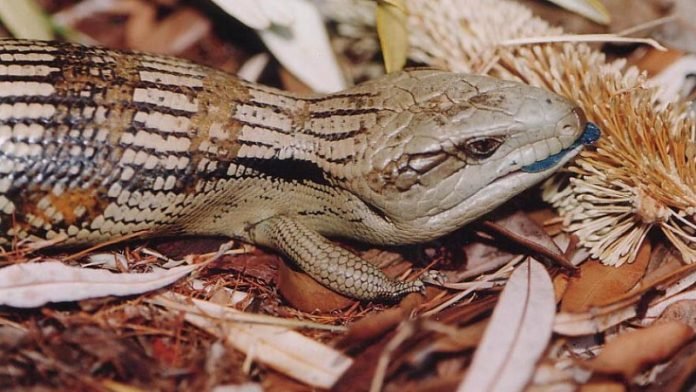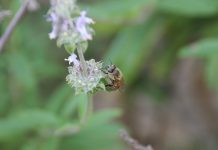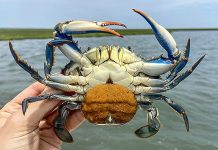
As children, we have much to learn after we are born.
We learn to walk, to talk, to develop our social skills, and when we start school we learn how to read, write and do maths.
Humans and many other animals are considered altricial, meaning that juveniles need to be taken care of by their parents until a certain point in time when they can go off and live on their own.
Some birds, fishes, and reptiles are what we call precocial – they start life ready to face the challenges on their own and with little or no parental care or protection.
Scientists have long wondered whether precocial animals are as developed in their ability to learn as they seem to be in other aspects of their life.
Eastern blue-tongue lizards are considered an extreme case of a precocial animal.
They give birth to live young and juveniles immediately disperse.
The fact that they are ready for a life without their parents right after they are born directly relates to their ability to learn.
A recent study found that juvenile blue-tongue lizards have adult-like learning ability which might give them the edge they need to survive all by themselves.
Juvenile blue-tongue lizards face many dangers during their first weeks of life (and beyond). They may encounter predators for the first time, have to figure out where to sleep and what to eat.
Because they are solitary lizards, learning from other blue-tongue lizards, adults or juveniles, is likely rare. This may be why having such good learning abilities at such a young age is so important.
“It came as a bit of a surprise that they were learning at the same level as the adults,” said Daniel Noble from The Australian National University (ANU), one of the authors of the study.
“After giving it some thought, however, it became clear that these juveniles’ advanced state at birth helps them to fend for themselves without protection from their parents. They need to be as smart as their parents to survive.”
Interestingly, juvenile lizards are also as flexible as their parents when it comes to learning something new.
In nature, animals often face changes in the environment and need to adjust to survive. An ability to learn new problems quickly and repeatably likely further increases a juvenile’s chances of survival.
“Our results are consistent with what has been found in chickens,” said lead author Birgit Szabo from Macquarie University.
“Chickens are considered very precocial birds and learn more flexibly than their mums. Lizards can now be added to the list of precocial animals in which juveniles get a head start thanks to their smarts.”
The research has been published in the journal Animal Behaviour.



